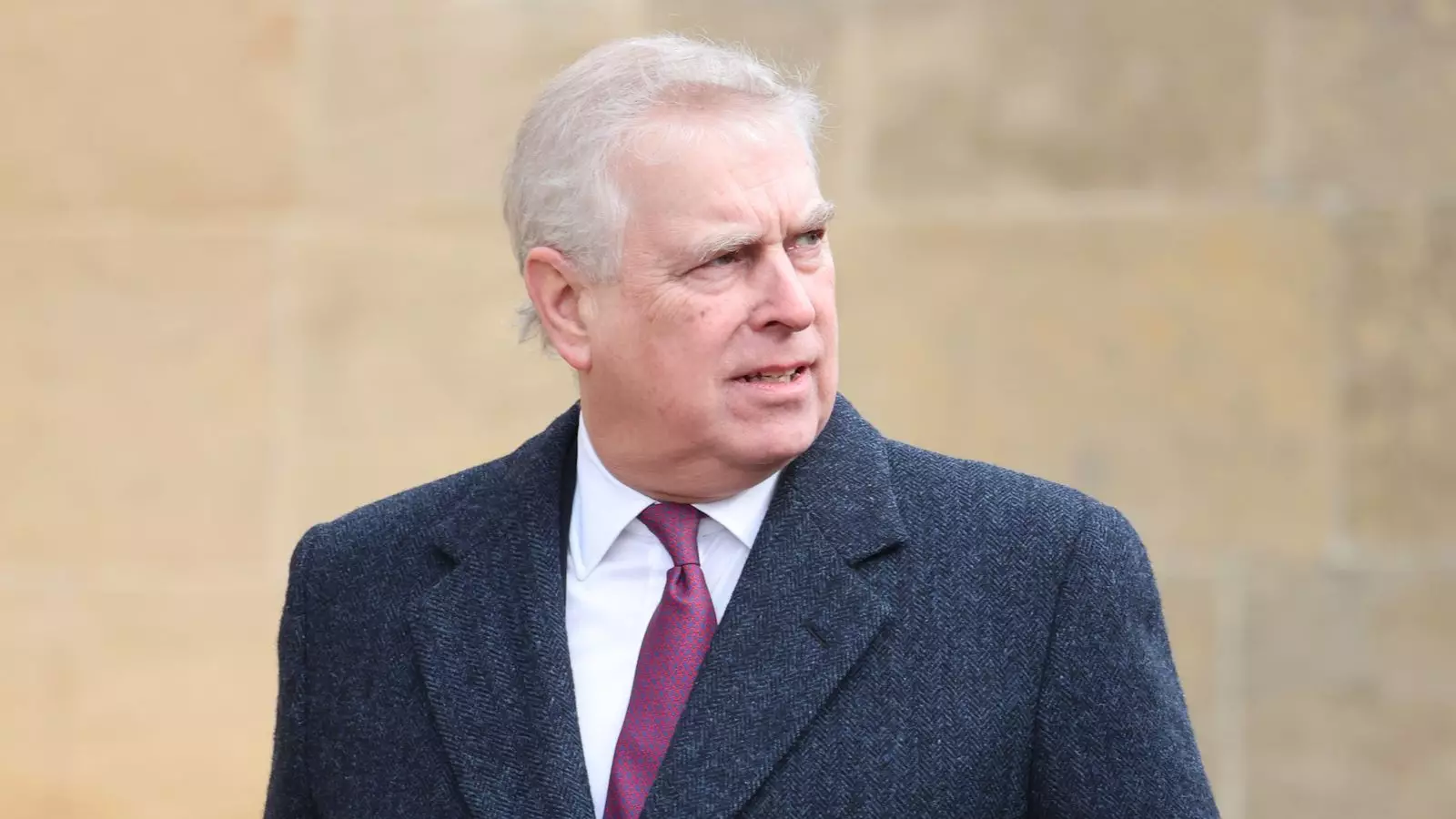In recent weeks, the British royal family has once again found itself entangled in a web of controversy, primarily surrounding Prince Andrew. The Duke of York, aged 64, took the notable step of publicly announcing that he had severed ties with a businessman who has been accused of espionage on behalf of the Chinese government. This revelation arose after national security concerns became a pronounced issue, with the UK government taking steps to mitigate any potential risks. This incident marks a significant moment in Andrew’s ongoing saga with the public and the media, shedding light on his controversial associations and the implications of such relationships.
The formal statement issued from Andrew’s office carries a tone of defensiveness, as he emphasizes his intention to comply with governmental advice regarding national security. He insists that his interactions with the businessman—who remains unnamed—were entirely appropriate and devoid of any discussions concerning “sensitive matters.” This claim raises several questions. If the discussions were innocuous, what prompted the significant governmental intervention? The lack of clarity surrounding these engagements only serves to foster greater skepticism towards the duke’s statements.
The unnamed individual, referred to as “H6,” is reported to have been barred from UK entry due to suspicions surrounding his activities in connection with the Chinese Communist Party. The timing of this exclusion, following questionable affiliations and a series of events leading to Andrew’s public distancing, paints a troubling picture for the royal. According to court decisions highlighted in the media, the severity of the accusations surrounding H6 casts a shadow over Andrew’s ability to navigate his public persona, further complicating his already precarious situation.
The allegations against H6 are not lighthearted, suggesting that he engaged in “covert and deceptive activity.” The Home Office’s decisions regarding his status suggest deep-rooted concerns regarding foreign influence in the UK, resonating within an increasingly suspicious international climate. The implications of H6’s purported actions could jeopardize not only Andrew’s reputation but also the integrity of royal engagements in sensitive international affairs.
It is worth noting that Andrew’s history has undeniably come into play in this unfolding narrative. Following his dismissal from public duties due to the scandal involving Jeffrey Epstein, Andrew has endeavored to reclaim a semblance of respectability. Yet, these recent events only serve as stark reminders of his turbulent past—one riddled with associations that haunt his public standing. The SIAC judges’ remarks about Andrew’s vulnerability due to H6’s influence serve to crystallize the perception that the prince continues to seek validation from dubious sources.
While the royal family has historically managed crises—both internal and external—this instance reveals the growing pressures faced by public figures in the contemporary age of information. The criticism aimed at both Prince Andrew and UK officials reflects not just on personal choices, but also on broader questions about international relations and national security protocols. Andrew’s previous role as a trade ambassador raises additional concerns, hinting at potential conflicts between royal duties and political diplomacy.
The response from the Chinese embassy, where officials dismissed the allegations as frivolous, adds another layer of complexity to this situation. The assertion of “smear campaigns” invoked by embassy spokespeople speaks to the ongoing tensions between Western nations and China—a geopolitical dynamic that continues to evolve. The desire for transparency and accountability in such sensitive matters is paramount, yet the balance between diplomatic relations and national interest remains fraught with challenges.
The circumstances surrounding Prince Andrew’s severance from H6 not only illuminate the struggles of a royal attempting to navigate public perception but also reflect the delicate fabric of international relations. With national security at stake and the specter of prior scandals looming overhead, Andrew’s future remains uncertain. As he endeavors to detach himself from shadowy affiliations, the consequences of past decisions may continue to haunt his legacy in the public eye. The prince’s narrative serves as a cautionary tale about the intersections of authority, influence, and accountability in today’s complex social landscape.


Leave a Reply